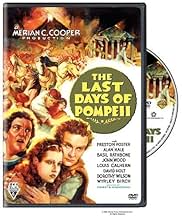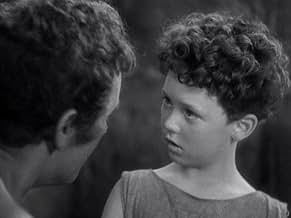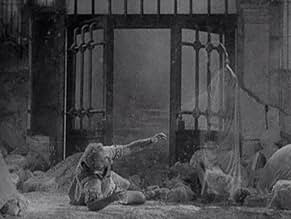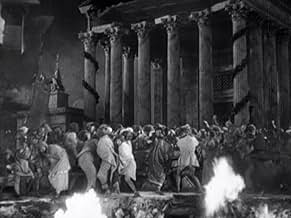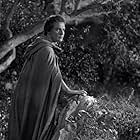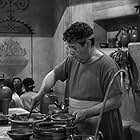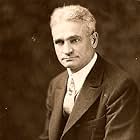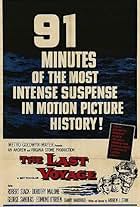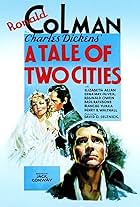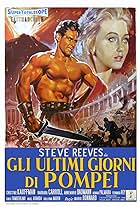In the doomed Roman city, a gentle blacksmith becomes a corrupt gladiator, while his son leans toward Christianity.In the doomed Roman city, a gentle blacksmith becomes a corrupt gladiator, while his son leans toward Christianity.In the doomed Roman city, a gentle blacksmith becomes a corrupt gladiator, while his son leans toward Christianity.
- Calpurnia
- (uncredited)
- Woman
- (uncredited)
- Noblewoman in Prefect's Box
- (uncredited)
- Porridge Seller
- (uncredited)
- The Janitor of the Slave Market
- (uncredited)
- Prefect's Guard
- (uncredited)
- Murmex of Carthage, a Gladiator
- (uncredited)
- Slave Auction Observer
- (uncredited)
- Runaway Slave
- (uncredited)
Storyline
Did you know
- TriviaAccording to the book The RKO Story, this film cost $237,000 more than it grossed in its original release, but it finally broke even with the box office from a 1949 re-release, paired with She (1935).
- GoofsThe central subplot of the meeting with Jesus is impossible, as Pompeii was destroyed after his death in A.D. 79. Given these dates, Flavius would have been a middle aged man, clearly not a young man as portrayed.
- Quotes
Pontius Pilate: My boy, I've heard such ideas, a long time ago. They are dreams - beautiful dreams, I know, but dreams nonetheless.
Flavius, as a Man: Was it a dream that once I knew a man who said "Love thy neighbor as thyself"?
Marcus: There never was such a man, I tell you.
Pontius Pilate: Don't lie to him, Marcus. There was such a man.
Flavius, as a Man: What happened to him?
Pontius Pilate: I crucified Him.
- Crazy creditsThe foreword at the beginning is a disclaimer stating that this film is not based on Edward George Bulwer-Lytton's novel. (It does not use the novel's plot, nor does it have any of the novel's characters.) However, the disclaimer goes on to say that the filmmakers are indebted to him for the description of the destruction of Pompeii.
- Alternate versionsA colorized version was made of this film in 1990.
- ConnectionsEdited into The Toast of New York (1937)
As a child, I loved Marcus' spiritual journey from innocent joy to sorrow to hard-hearted bitterness to mercenary greed and, finally, to redemption. As an adult, I still like the tale, but have focused more on the acting and production values. I disagree with the commentators who call the acting "wooden." Foster gives one of the best performances of his career as Marcus. As many note, Rathbone renders a sympathetic, sensitive delineation of Pilate. And the supporting players are superb: Edward Van Sloan as a kindly neighbor, Frank Conroy as a kind but condescending noble, Gloria Shea as the young wife, Dorothy Wilson as the son's love interest, Calhern as the despicable Prefect, Zeffie Tilbury as an old Greek soothsayer, etc. Even the minor roles are well-etched: Ward Bond as a bragging opponent of Marcus, Jason Robards Sr. as the tax gatherer, Reginald Barlow as the slave market proprietor, Kinnell as the Judean peasant, and many more. One can even spot Jim Thorpe throwing coins after a gladiator battle. A few players did very underrated work in "The Last Days of Pompeii." Alan Hale Sr., as Burbix, captures the rough edges of a criminal and then the fierce loyalty to his understanding friend Marcus. William V. Mong, as the growling-at-times, cowering-with-fear at others, slave dealer, Cleon, gives a wonderful, colorful performance that is anything but "wooden." But it is Wyrley Birch, as Leaster, the kindly Greek scholar/slave, who provides the moral compass for the film, counseling Marcus, tolerating his greed and seeming imperviousness to the suffering of others, while educating his son Flavius that there is a better way and far superior values than those his father seems to endorse. Birch walks the tightrope and never becomes overly sentimental. Truly, Leaster represents the apex of Birch's career.
"The Last Days of Pompeii" is an enjoyable film on many levels, including as a morality tale. It is much more than that, however. And for lovers of old character actors, it is a treasure trove!
- How long is The Last Days of Pompeii?Powered by Alexa
Details
- Release date
- Country of origin
- Language
- Also known as
- Der Untergang von Pompeji
- Filming locations
- Production company
- See more company credits at IMDbPro
Box office
- Budget
- $1,000,000 (estimated)
- Runtime1 hour 36 minutes
- Color
- Aspect ratio
- 1.37 : 1
Contribute to this page



